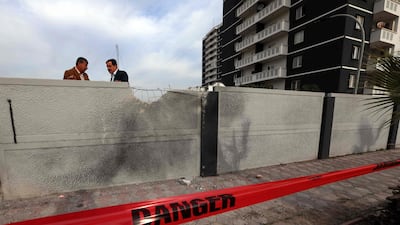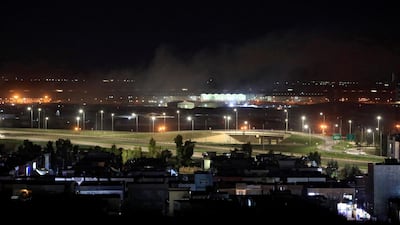Erbil Attack
Erbil attack: Iran-made rockets used to kill contractor and wound US soldier
Shadowy militia organisation likely backed by Iran claims fatal Iraq attack on US base
UN warns Erbil attack could destabilise Iraq as world condemns strikes
Biden faces first test in Iraq









